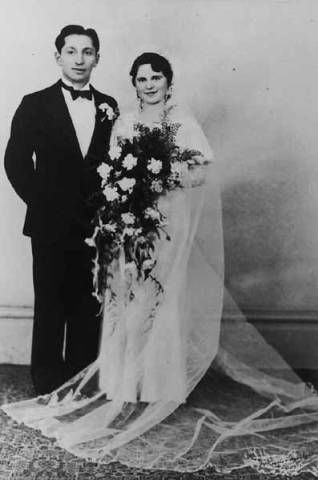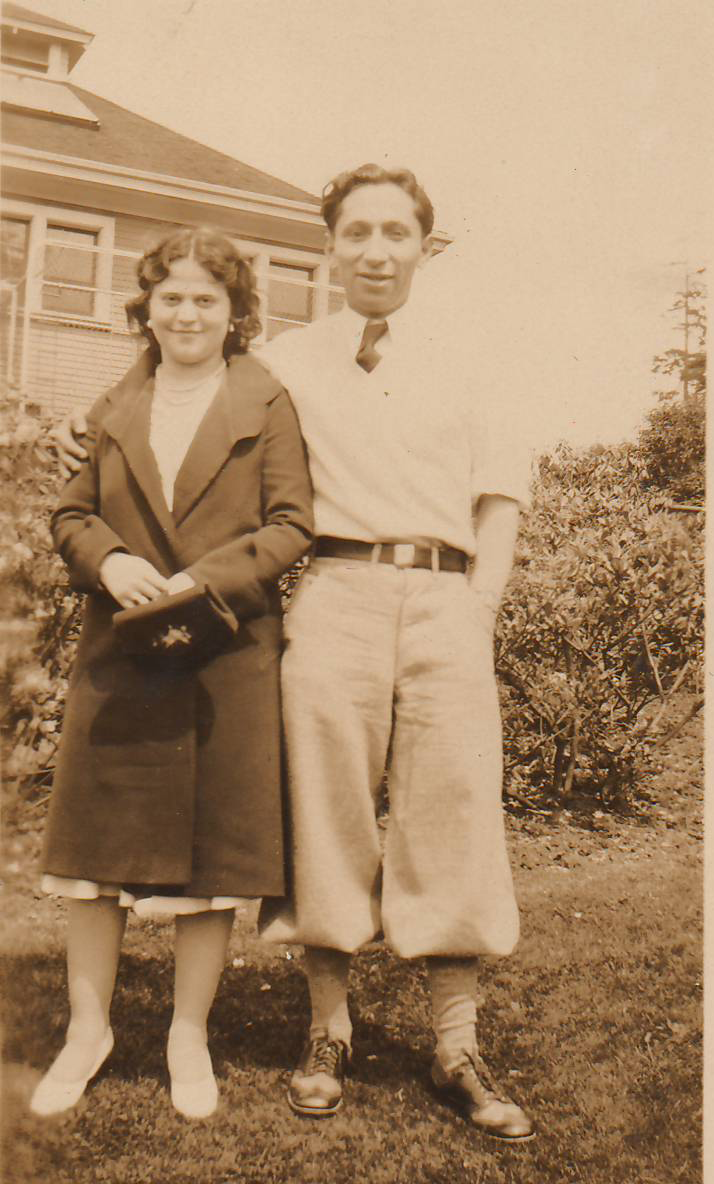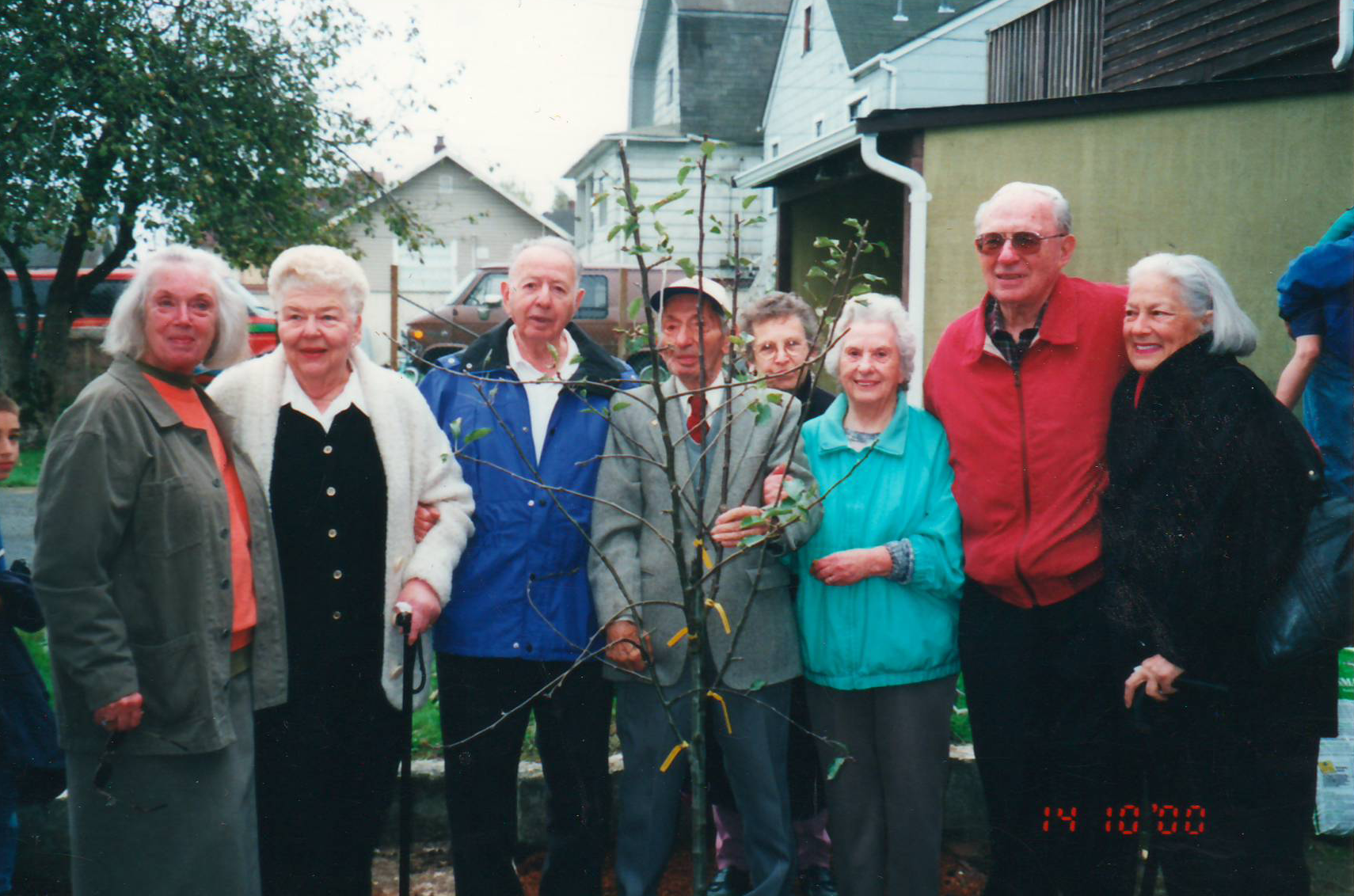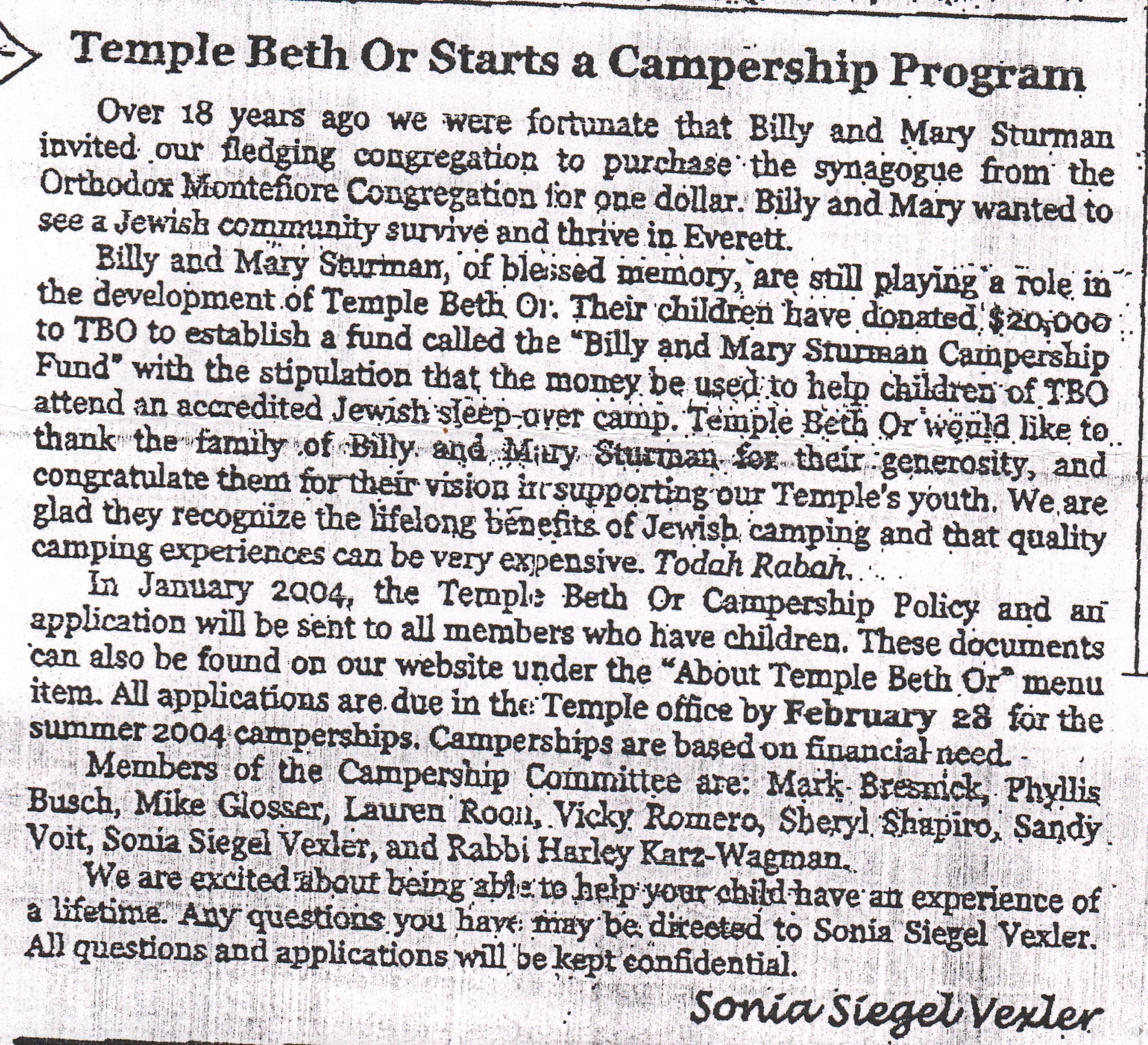Billy Sturman was born 1908 in Slawatycze, Poland (on the Eastern border with modern day Belarus, near Brest-Litovsk), which was, at the time, an Orthodox Jewish town. Billy’s father, Joe, was a shoe manufacturer in town and the family was well-to-do. When Billy was 1.5 or 2 years old, his family, including his mother, father, and brother, immigrated to Newark, New Jersey. In Newark, Joe had a hard time finding work and the family experienced poverty for the first time. After 7 or 8 years, Billy’s mother had enough and returned to Poland with her three children (including a girl born in the United States). Joe stayed in the United States and worked around the southern states for few years before moving to Everett, WA around 1916 to start a shoe repair shop.
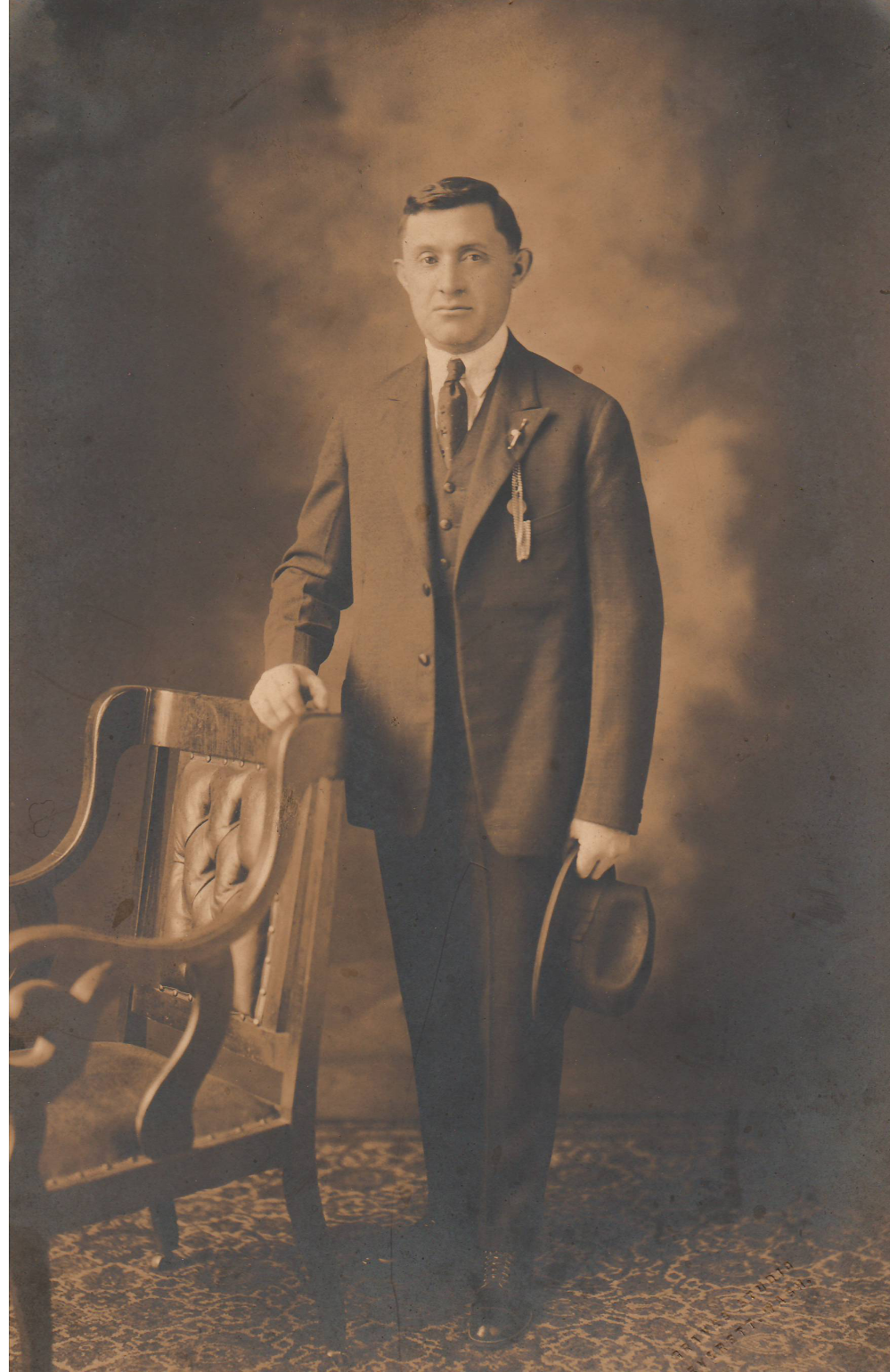
Joe Sturman
The above audio is curated from a recording in the Washington State Jewish Archives oral history collection.
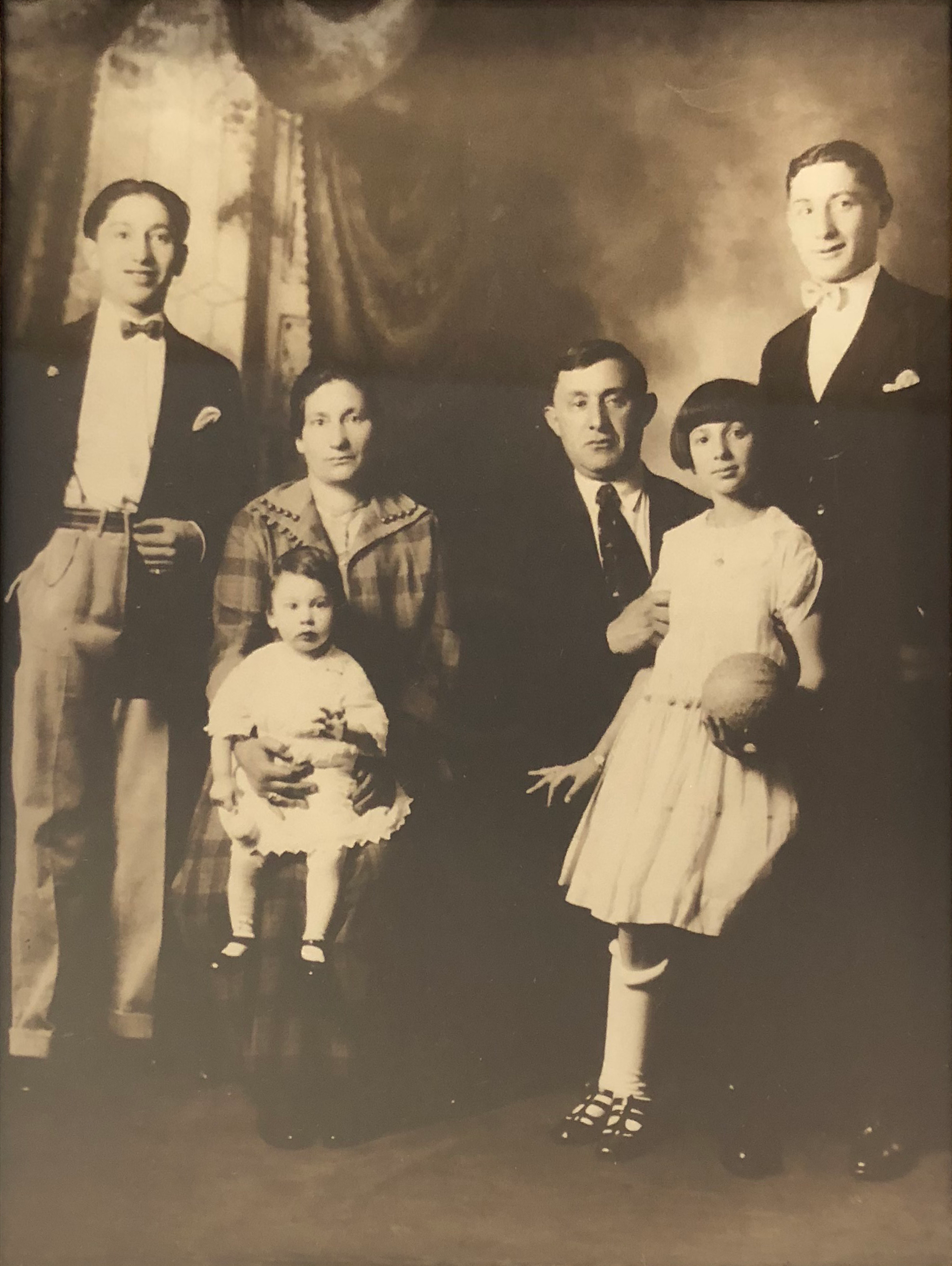
Billy (left) with his family
The above audio is curated from a recording in the Washington State Jewish Archives oral history collection.
Meanwhile, in Poland, Billy’s older brother, Sam who was, at the time, 18 or 19 years old, boarded a boat bound for South America. He got off in Panama and worked in as a waiter in a restaurant called “Metropolitan Hotel.” Sam saved about $3000 over the course of two years before joining his father in Everett in 1920 or 1921. Billy’s father had been unable to save enough money through his shop to send for the rest of the family so Sam lent him the $2000 required and in 1924, Billy and the rest of his family traveled from Slawatycze to Warsaw to Ellis Island and then by train to Everett. At Ellis Island, the family was stopped by immigration and almost sent back to Poland. However, the family argued that since the youngest daughter, Ann, was born in the US, they should be allowed to immigrate. Several Jewish families in Everett also went to the immigration offices and sponsored the Sturman family, guaranteeing they would not become a burden on the government and they were allowed to stay. (Billy names Abe Kosher, Abe Michelson, and Moshe Sherman as some of the individuals responsible for sponsoring the Sturman family).
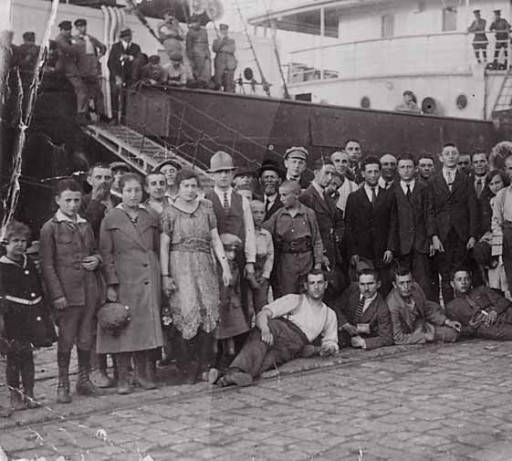
Sam Sturman, en route to Panama
The above audio is curated from a recording in the Washington State Jewish Archives oral history collection.
In Billy’s own words:
“We came on the train, and my ma...it happened to be the first part of April, and we took the train from New York, and we changed trains in Chicago. From Chicago we got into the blizzards and big snow, and that train was gone for days and nights, full of snow. The windows were all frozen up. My ma, all of us, we were really shook up, because we figured we were going to freeze to death because my dad moved to such a country where there was such a cold spell. It was terrible. So my ma said to me, ‘Billy, where Dad lives, we're going to all freeze to death.’ When we got off from the mountains then we came into a new world. It's summer; the sun was out; the trees were blooming; the grass was green, just like coming into a new world from the mountains. It was really amazing. I'm still amazed on account of seeing a country like that, coming down only 25, 30 miles from the mountains, there is a new world, with flowers all over the houses blooming.”
The above audio is curated from a recording in the Washington State Jewish Archives oral history collection.
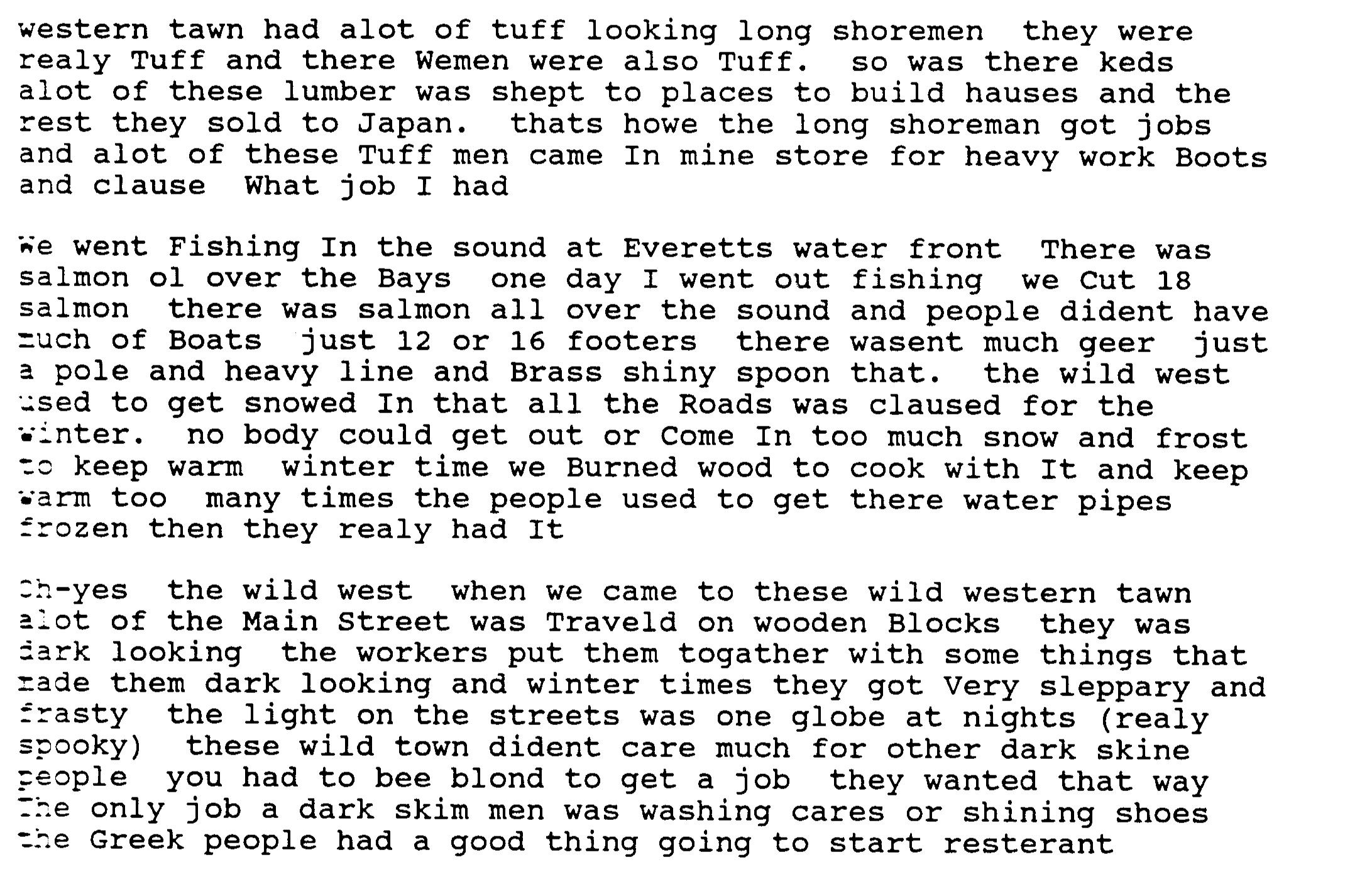
Excerpt from Billy's "memwas" (memoirs) describing Everett, WA
Once the family was reunited in Everett, Sam and Joe bought a house on Rockefeller Ave. Billy attended school for two years before quitting to work more in his father’s shop. He then attended night school for three more years in order to learn the information necessary to become a US citizen. Billy also joined the YMCA as a recent immigrant and was the only Jewish member. Some of the other kids called him names for not speaking English, looking foreign, and being Jewish. Billy states that he, “wouldn’t stand for that, so I started slapping some of them kids around. I knocked one kid; blood right out of his nose, and I told him, ‘Don’t you ever call me any names. My name is Billy, and that’s all I want you to call me. Don’t call me any slang names.’” Billy was a member of the YMCA for 14 years.
The above audio is curated from a recording in the Washington State Jewish Archives oral history collection.
The YMCA wasn’t the only place where Billy stood up against anti-Semitism. In his own words:
“I found out right before the Second World War, there was a Nazi organization started here in Everett, Silver Shirt Organization. Well, I didn't like the idea of these people slandering Jews, so I went to their meetings. How I got into their meetings was that friends of mine used to give me a ticket, and they told me, ‘There's going to be a meeting in this building, a Silver Shirt meeting.’ I used to go into the meeting down there, and I used to break up those meetings. How I done it, it was just a marvelous thing. I wasn't afraid of those Silver Shirters. They were sitting right there, a whole row of them, and I stood up, and I said, ‘What are you people trying to do? Are you trying to bring Hitler's ideas here to the United States? We left Europe to run away from those kind of ideas, and you people want to bring these ideas to the United States?’ I said, ‘It's not going to work; I'll tell you that, because this country was established, freedom for everybody, freedom of religion, freedom of press, freedom of speech, and we're not going to stand for that kind of ideas, to bring European ideas to the United States.’ The funny thing what happened, I wouldn't let that man speak, that man who was going to speak. I told him right plain, anything you're going to slander Jews or Christians, I'm going to call you a big liar, and I'm going to prove it among all these people that you're lying. And he didn't open up his mouth; he was scared to death to open up his mouth, because I was going to prove that he was a big liar. I broke up those meetings.
I: That was during the war or before the war?
S: That was right before. It started in 1938; they wanted to bring Nazi ideas to this country. They got a bunch of uneducated people, and put on silver shirts and they called themselves the Silver Shirts organization.
I: How long do you think that lasted?
S: That lasted for a couple of years. I told the congregation about it. They came and participated with me to those meetings. One Jewish man picked up a chair, and he said, ‘If you're going to knock any Jewish people I'm coming up on that platform, and I'm going to hit you with that chair right over your head.’ We broke up those meetings; they were scared of us. Every time they had a meeting going, we were there.
I: Who else went with you?
S: Billy Kosher, Mr. Silverstone, and a few more Jewish strong men.
I: You didn't have any trouble after that? They didn't threaten you?
S: No, they disappeared out of town. They couldn't do nothing in this town somehow because we were right there, and we proved to them, that they were wrong. They couldn't get anywhere.”
After living in Everett for a bit, Sam decided to move to New York City. Unfortunately, he did not prosper there and returned to Everett without any money. Billy lent him $425 and with that money, Sam started a small business in Everett called, “Sam’s Army Navy Store.” At the time, Billy was still working at his father’s shoe store, which was called “Everett Shoe Hospital” and was located at 2008 Hewitt Ave. When his father retired in 1954, Billy would stop his house every day on his way to and from work until Joe died at age 82.
The above audio is curated from a recording in the Washington State Jewish Archives oral history collection.
According to a newspaper article in Northwest Passage (below), in 1928, Billy was approached by a man on the street asking if he would buy his clothing and supply store. Billy convinced his bank to loan him the money necessary under the condition that Billy would bid 55 cents on the dollar. In 1928, “Billy’s Menswear” (later called Billy’s Men’s and Boy’s Western Wear”) was officially opened. Billy barely had time to settle in before the Depression hit. During this time, Billy says, only two stores on the block--including his own--were able to stay open. Billy’s store was only able to stay open in part because his creditors did not foreclose on his stock. Through the Depression, Billy was generous with his patrons and he credits that generosity as aiding in his store’s eventual longevity. Billy says, “The people that I treated good never forgot it. They’re what kept me 50 years in business. It’s the people that done it.”
In 1935, Billy was convinced by a mysterious stranger to stock up on Western gear because he was bringing Snohomish County its first rodeo. When Billy asked the stranger why he chose to “pick on” him, he replied that no other store took him seriously. With trepidation and the promise of the stranger to buy back any unsold stock, Billy drove to Seattle and stocked up on Western gear despite the fact that no one in Seattle are wore that type of clothing. Much to his surprise, within a week of the rodeo beginning, Billy had sold out his entire stock. He restocked with and never turned back, selling Western gear for the rest of the store’s existence.
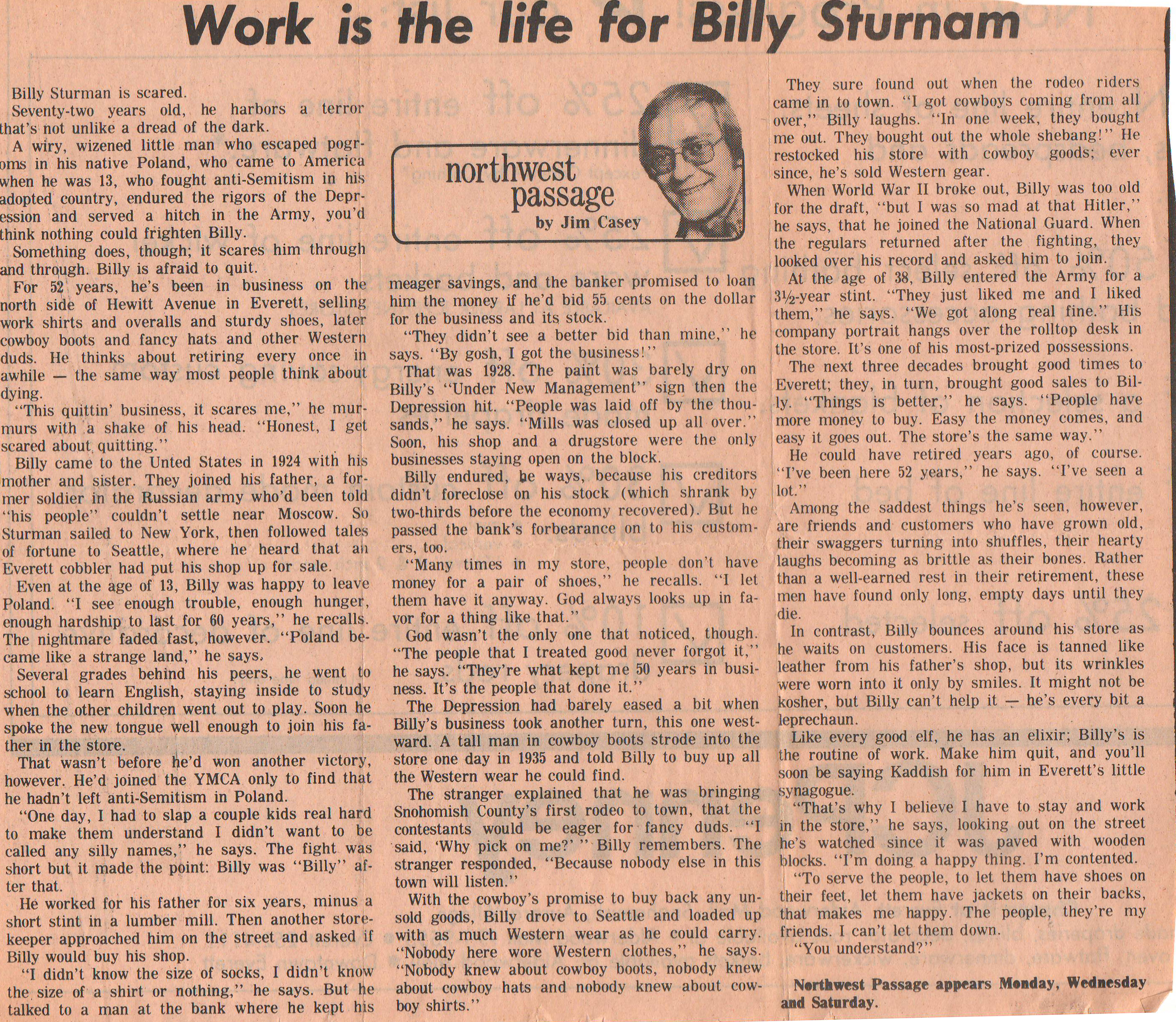
Billy ran his store for 68 years in the same location on Hewitt Ave in Everett. To many, he was considered a well loved fixture in the neighborhood. In the Northwest Passage article, Billy states, “To serve the people, to let them have shoes on their feet, let them have jackets on their backs, that makes me happy. The people, they’re my friends, I can’t let them down. You understand?”
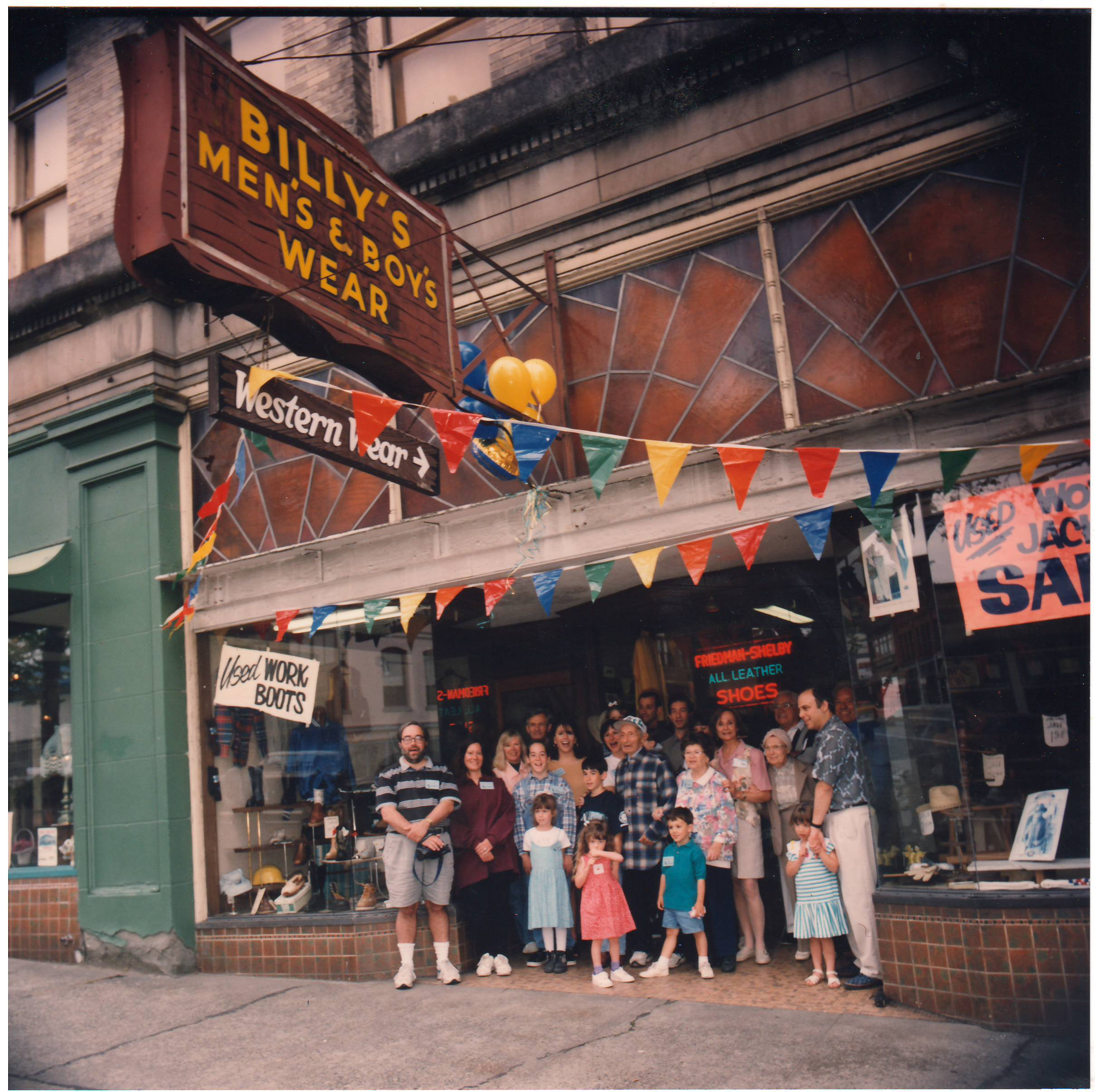
Billy and his extended family outside his store
But on May 21, 1996, tragedy strikes Billy, when he is found by passerby’s at 4:30 pm outside the front of his store crawling and badly beaten. He was attacked by a man described as a “transient” who robbed his store. The man who attacked him, 20 year old, Frank Lee James Uhyrek, was arrested eight hours later only blocks away wearing what appeared to be clothes from the store. He was charged with first degree robbery and sentenced to 8.5 years. Billy spent several days in critical care but survived. Unfortunately, he never went back to selling clothes at his shop and officially retired after 68 years of business.
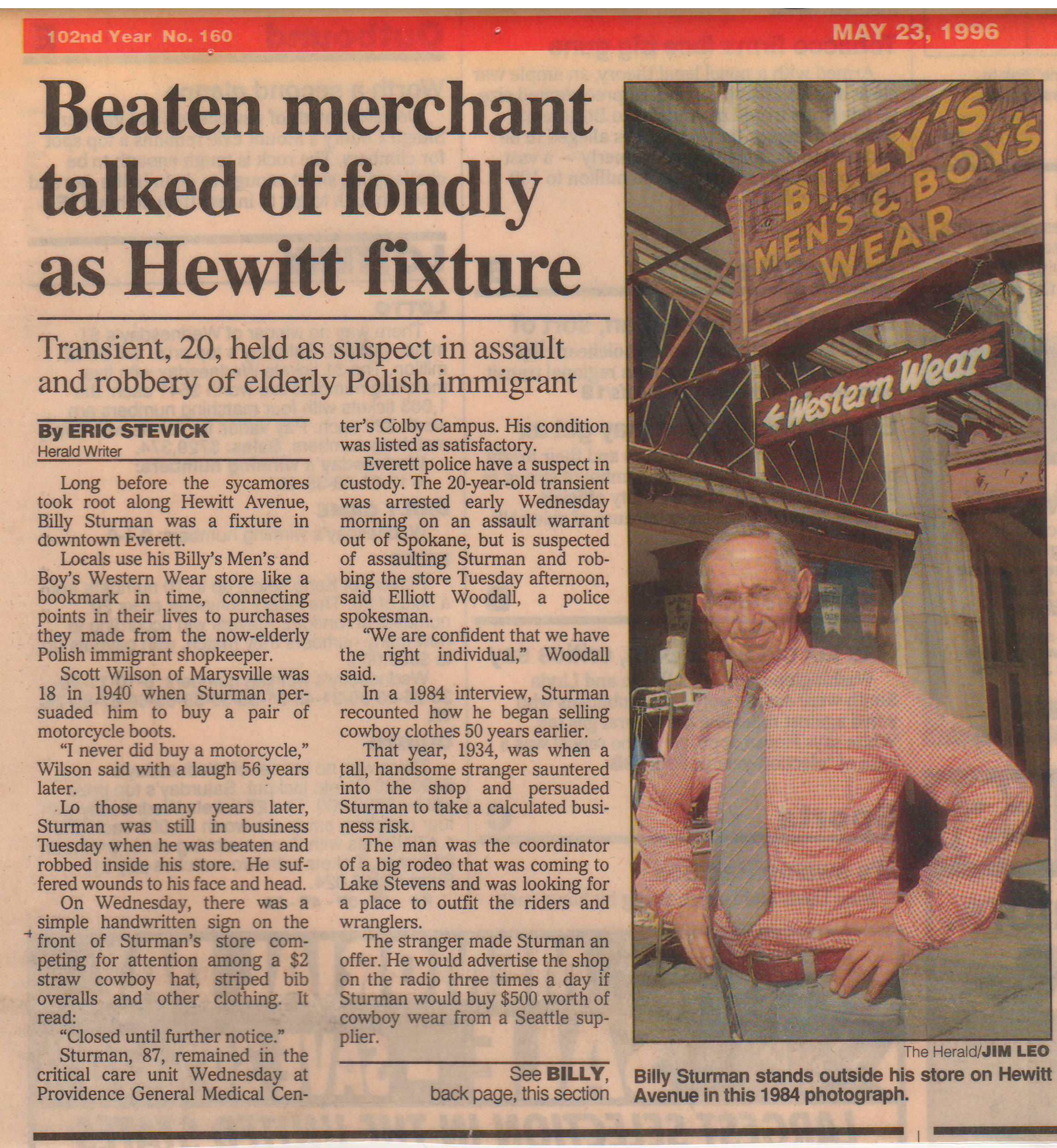
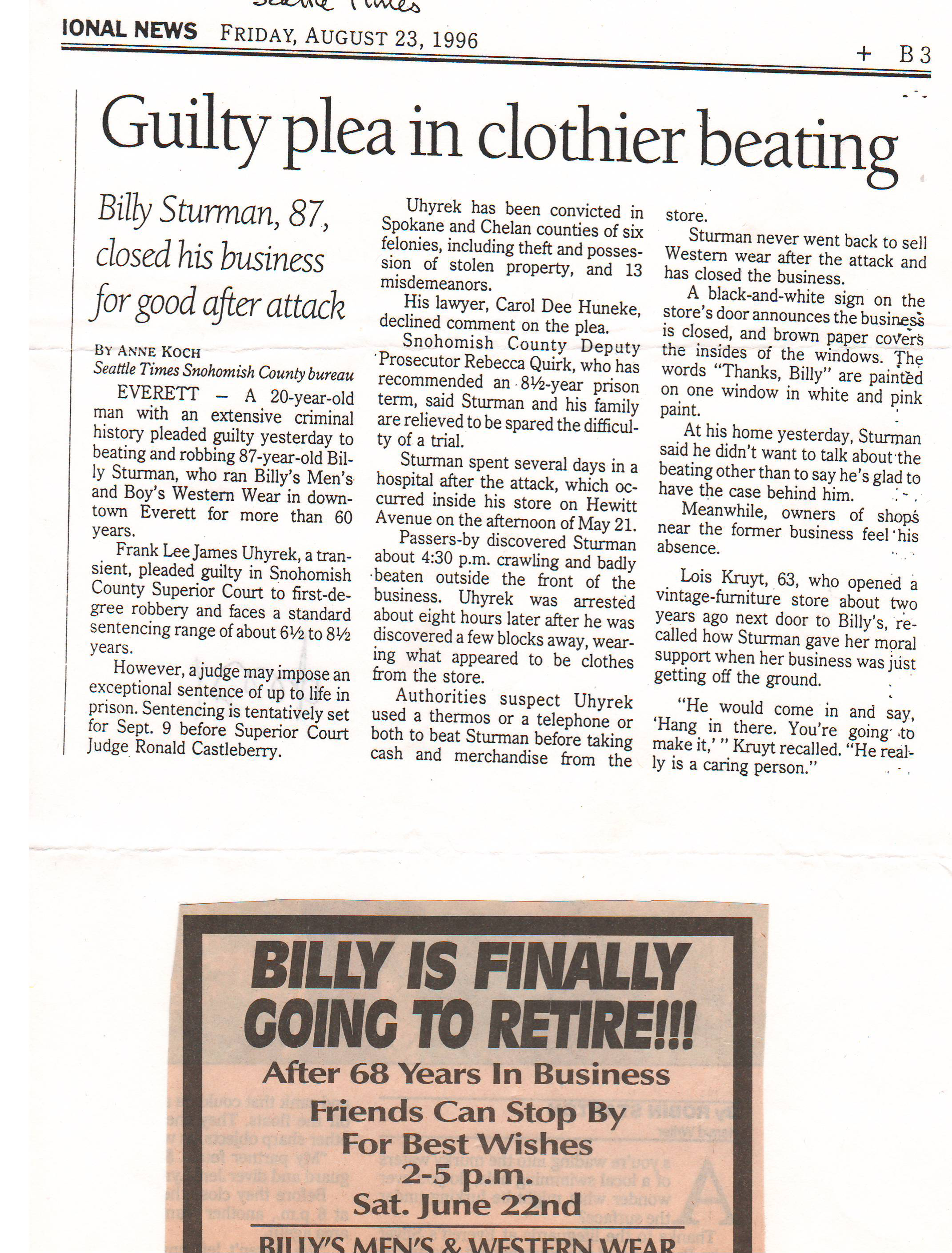
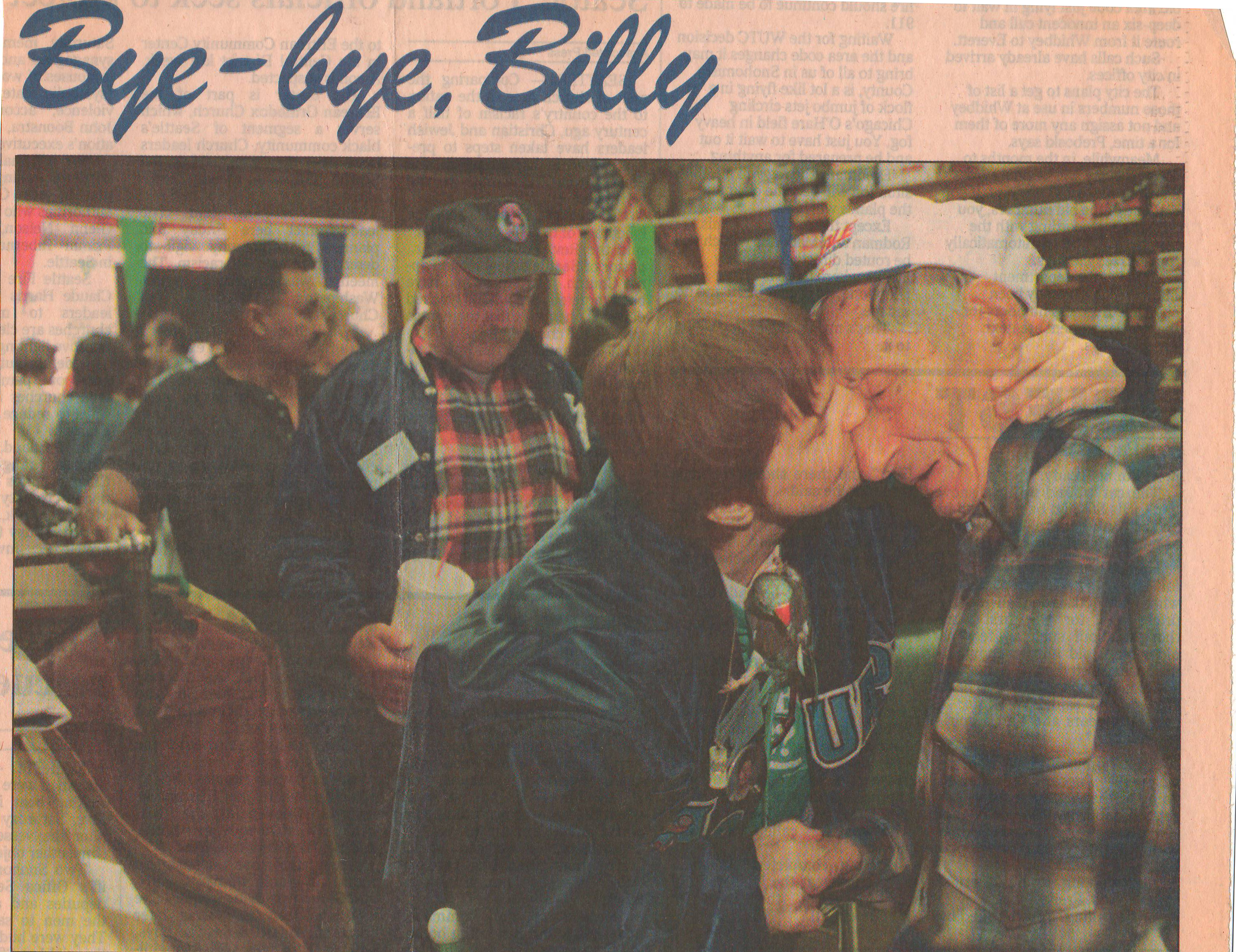
Delila VanWeerthulzen says goodbye to Billy
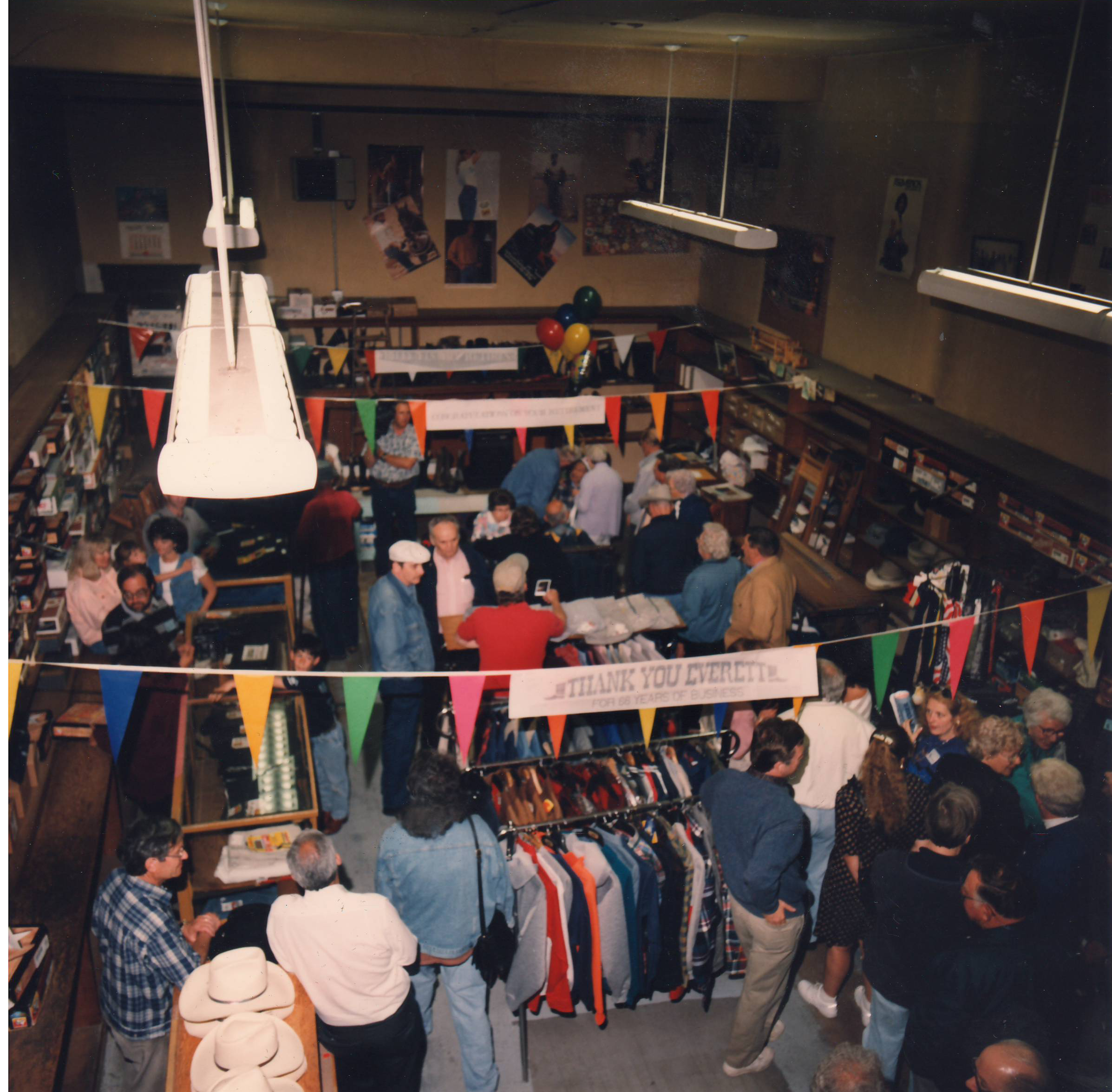
Inside Everett store, Billy is greeted by well wishers
In the early 1930s, Billy met the woman who would later become his wife, Mary Mann. She was a friend of his younger sister, Ann, who lived in Vancouver, BC. She came to visit his sister and they stayed up all night giggling. Billy recounts, “I was sleeping nearby and fell in love with that giggle.” They visited back and forth and eventually married in 1932. They had two children: Melvin (Mel) and Sandra (Friedman).
The above audio is curated from a recording in the Washington State Jewish Archives oral history collection.
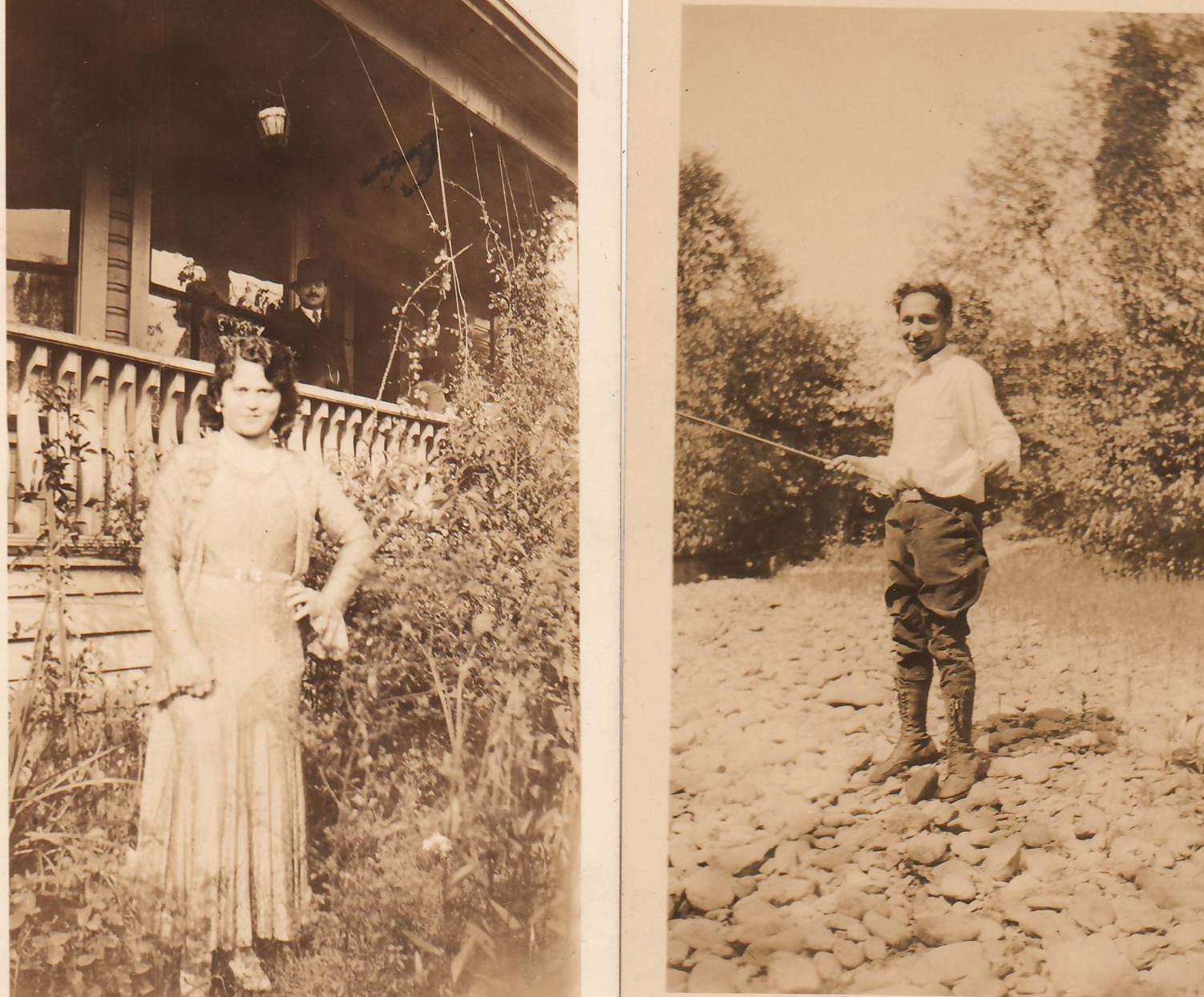
Mary and Billy
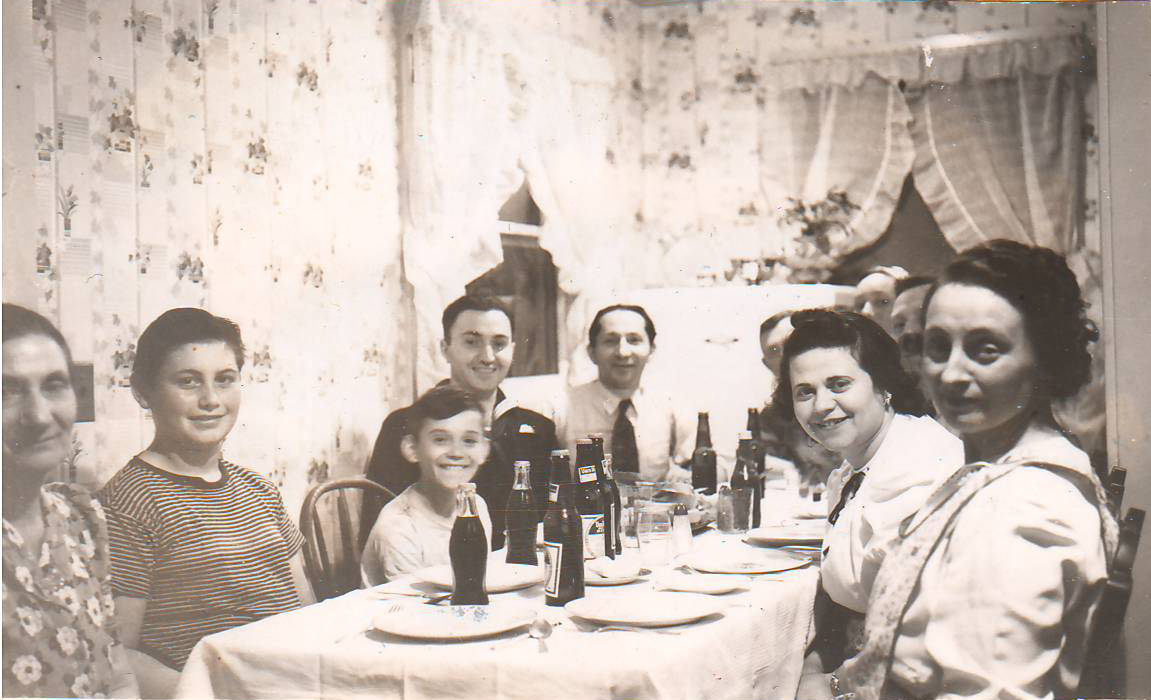
Shabbat at the Sturman house
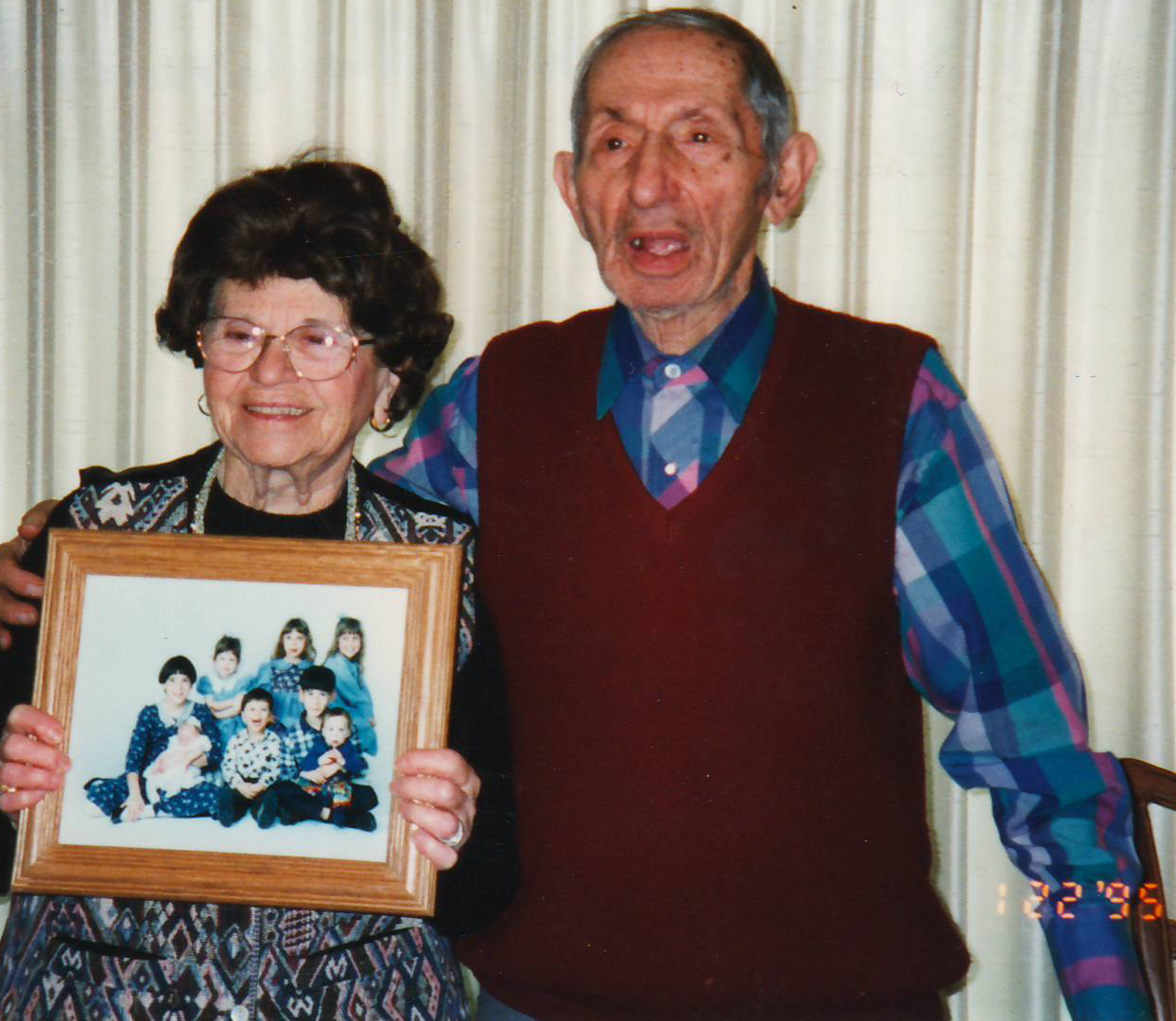
Billy and Mary, the grandparents
When Billy arrived in Everett in 1924, there was already a small Jewish congregation called Montefiore, comprised of 60 or 70 Orthodox families, most of whom were recent immigrants. In his oral history, Billy describes hiring different rabbis to lead services on the High Holidays (Rosh Hashanah and Yom Kippur) but otherwise, the community would lead itself. Billy describes the late 1920s and early 1930s as being the peak of the Montefiore Jewish community. After that time, the community shrunk with some members leaving for Seattle to connect with a larger Jewish community with the resources for Jewish life while others simply passed away or their children became less involved. Billy describes a dwindling Orthodox community which sought to welcome all Jews regardless of observance or intermarriage. He also expresses great sadness that others in the Jewish community are worried the Orthodox community will not accept them or are less involved in Jewish life.
By the early 1980s, only a few people were involved in the Montefiore Congregation and the temple they owned fell largely into disuse and disrepair and Billy stored the Torah scrolls away in his own home. But in 1984, Billy heard of plans to start a Reform Temple in Everett. He and other members of the Orthodox congregation decided that the Reform congregation should have their building. At first, the Reform congregation didn’t understand or believe the offer. But finally, they accepted and Temple Beth Or took over the building.
Video courtesy of Temple Beth Or
William "Billy" Sturman Obituary from The Seattle Times:
William "Billy" STURMAN September 22, 1906 - August 19, 2002 Billy passed away quietly in Seattle at the Caroline Kline Galland Home. He was preceded in death by his beloved wife of 67 years, Mary Sturman, who passed away in 1999. Billy had lived in Everett since 1919 . He and Mary opened Billy's Clothing Store on Hewitt Avenue in 1933, which they managed together until its closing in 1996. Billy especially enjoyed spending time with his family during family and holiday celebrations. He took great pride in his store and garden, and was an avid fisherman. Billy was instrumental in the formation of Temple Beth Or in Everett, and was a cherished elder there. He is survived by his children Dr. Melvin and Leena Sturman of Seattle and Sandra Friedman of Bellevue. Grandchildren include Monica and Scott Greenberg, Suzie Ceccanti, Brad Sturman, Stacey and Ken Rudee, Wendy and Adam Rosen, Janice and Barry Friedman and nine great grandchildren. He is also survived by his sisters Ann Gross and Esther ( and Jerry) Schor and many nieces and nephews. Funeral services will be held Wednesday, August 21 at 11:00 a.m. at the Bikur Cholim Cemetery, 1340 N. 115th Street, Seattle. Donations may be made to Temple Beth Or, 3215 Lombard Ave, Everett, WA 98201 or to the Caroline Kline Galland Home, 7500 Seward Park Ave S, Seattle, WA 98118, or to your favorite charity.
Published in The Seattle Times on Aug. 21, 2002
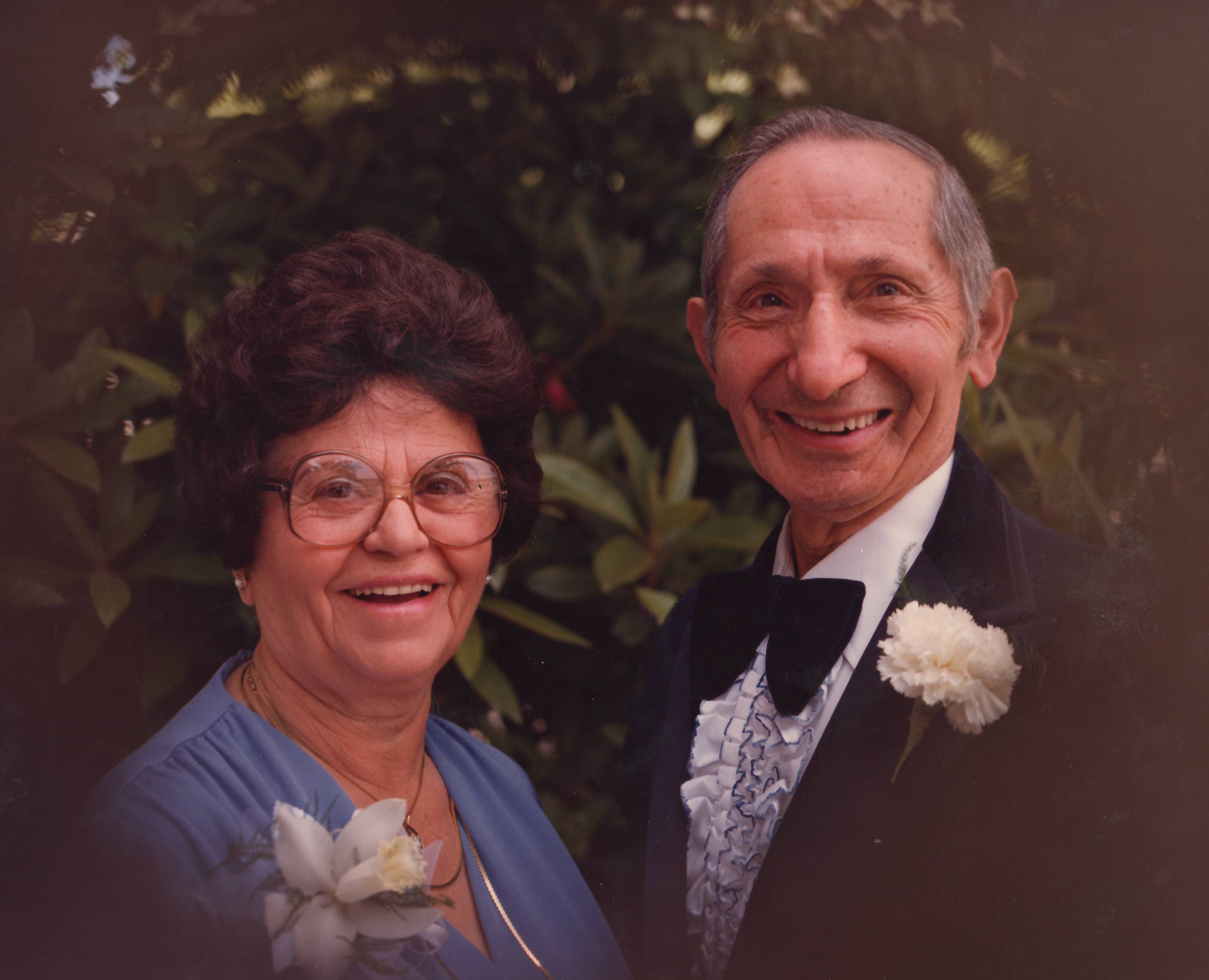
50th wedding anniversary, 1972
Billy and Mary Sturman's legacy lives on at Temple Beth Or through the generous campership program created by their children, Mel and Sandra. The "Billy and Mary Sturman Campership Fund" was established to help children in the temple attend Jewish summer camp--an important cultural touchstone that encourages children to explore their Jewish identities.
